Il gaming è entrato in una nuova era di prestazioni con le ultime console e schede grafiche che spingono i confini come mai prima. Per sfruttare appieno il potenziale della tua nuova PS5, Xbox Series X o PC da gaming di fascia alta, un cavo HDMI aggiornato di CABLETIME è un must. Offrono una gamma di cavi HDMI 2.1 durevoli e affidabili, realizzati appositamente per le esigenze di larghezza di banda elevata del gaming di nuova generazione.

Indice dei contenuti
- 1. Perché HDMI 2.1 è essenziale per il gaming moderno
- 2. Scelta della lunghezza corretta del cavo HDMI
- 3. Caratteristiche da cercare nei cavi HDMI per giochi
- 4. Conclusione Panoramica
- 5. Domande correlate:
- 5.1 D: Qualsiasi cavo HDMI 2.1 funziona con PS5 e Xbox Series X?
- 5.2 D: Perché i prezzi dei cavi HDMI 2.1 variano così tanto?
- 5.3 D: Quanto devono essere resistenti i cavi HDMI per un uso regolare nei videogiochi?
- 5.4 D: I cavi HDMI 2.1 funzionano con i vecchi dispositivi HDMI 2.0?
- 5.5 D: È possibile collegare a cascata più cavi HDMI per percorsi molto lunghi?
- 6. Raccomandazioni di chiusura
Perché HDMI 2.1 è essenziale per il gaming moderno
HDMI 2.1 apre un tesoro di funzionalità di gioco all'avanguardia che miglioreranno la tua esperienza. I cavi CABLETIME supportano pienamente tutti questi miglioramenti chiave per il gioco:

Una maggiore larghezza di banda consente funzionalità di gioco avanzate
Con una larghezza di banda fino a 48 Gbps, HDMI 2.1 ha una capacità di trasmissione dati potenziale quasi 3 volte superiore rispetto a HDMI 2.0.Questa enorme pipeline sblocca il supporto per funzionalità di gioco all'avanguardia come:
- Risoluzione 4K a frequenza di aggiornamento di 120 Hz
- Risoluzione 8K a 60Hz
- Modalità High Frame Rate (HFR) fino a 4K a 144 Hz
- Canale di ritorno audio avanzato (eARC) per il passaggio audio senza perdita di dati
Di CABLETIME Cavo HDMI 2.1 8K E Cavo HDMI ottico attivo hanno un'ampia larghezza di banda per gestire queste risoluzioni e frame rate all'avanguardia. Questa pipeline espansa tra il tuo dispositivo di gioco e il display fornisce la produttività necessaria per un gameplay fluido come l'olio.
Ecco un confronto di ciò che è esattamente consentito dal passaggio da HDMI 2.0b alla nuova specifica 2.1:
| Caratteristica | HDMI 2.0b | Uscita HDMI 2.1 |
| Risoluzione massima | 4K a 60 Hz | 8K a 60 Hz |
| Frequenza fotogrammi massima 4K | 60 fotogrammi al secondo | 120 fotogrammi al secondo |
| Larghezza di banda | 18 Gbps | 48 Gbps |
| Immagine HDR | Limitato, HDR10 | HDR10+ dinamico completo |
| Frequenza di aggiornamento variabile | NO | Sì, fino a 120Hz |
| Modalità automatica a bassa latenza | NO | SÌ |
| Canale di ritorno audio migliorato | NO | SÌ |
Tabella 1: Confronto delle caratteristiche HDMI 2.0 vs HDMI 2.1
Come puoi vedere, HDMI 2.1 rappresenta un enorme salto generazionale in termini di capacità. Ciò prepara il terreno per esperienze di gioco trasformative semplicemente non possibili con i vecchi standard HDMI.
I cavi di nuova generazione di CABLETIME supportano pienamente tutte le funzionalità di gioco HDMI 2.1 di cui sopra. Ciò ti consente di accedere alle modalità di prestazioni più elevate rese possibili da GPU e display all'avanguardia. Di seguito, tratteremo più in dettaglio alcuni dei vantaggi più importanti.
Analisi dettagliata del connettore HDMI 2.1 Caratteristiche di gioco
Ecco uno sguardo più approfondito ad alcuni dei miglioramenti fondamentali per il gaming resi possibili specificatamente da HDMI 2.1:
Risoluzione 4K a frequenza di aggiornamento di 120 Hz
La capacità di eseguire immagini 4K a 120 fotogrammi al secondo è senza dubbio la caratteristica di gioco di punta di HDMI 2.1. Questa combina dettagli ultra-high-def estremamente nitidi con frame rate notevolmente potenziati per una fluidità in movimento senza precedenti.
Le scene scorrono senza soluzione di continuità, senza intoppi o sfocature percettibili che si verificano al di sotto della soglia dei 120 fps. Anche la risposta del controllo sembra più scattante e reattiva a 120 Hz, il che può fornire un vero vantaggio competitivo.
La nitida nitidezza nativa 4K a un gameplay fluido come il burro a 120 fps si traduce in un'esperienza sensoriale rivelatrice che deve essere semplicemente vista in prima persona per essere apprezzata appieno. Questa modalità ad alta larghezza di banda è impegnativa, quindi avrai bisogno sia di una GPU HDMI 2.1 o di una console insieme a un display compatibile con HDMI 2.1.
Ma con i cavi certificati da 48 Gbps di CABLETIME come il Uscita HDMI 2.1 8K, puoi stare certo che la tua connessione può gestire senza problemi queste risoluzioni e frame rate all'avanguardia.
Frequenza di aggiornamento variabile (VRR)
VRR consente al tuo display di adattare dinamicamente la sua frequenza di aggiornamento alla frequenza dei fotogrammi in-game che viene pompata fuori momento per momento dalla GPU. Questa sincronizzazione elimina brutti artefatti visivi come balbettii, strappi e jitter che si verificano con frequenze di aggiornamento fisse non corrispondenti.
Senza VRR, una discrepanza tra uno schermo da 60 Hz e un gioco che oscilla tra 70 e 100 FPS causerebbe tutti i tipi di distorsione temporale. VRR fornisce una correzione adattiva regolando continuamente la frequenza di aggiornamento del monitor ovunque tra 40 Hz e 120 Hz al volo.
Questa correzione in tempo reale si traduce in un'animazione notevolmente fluida, un ritardo minimo e una risposta del controller più coerente. Una volta sintonizzato, il VRR sfuma semplicemente in modo trasparente sullo sfondo, eliminando gli artefatti brutti che possono rovinare l'immersione.
Grazie al supporto di un VRR affidabile da 20 a 240 Hz, i cavi HDMI da gaming di CABLETIME garantiscono una sincronizzazione impeccabile dei fotogrammi, senza intoppi o interruzioni che distraggano dall'azione sullo schermo.
8K 60 Hz
Un'altra caratteristica di spicco dell'HDMI 2.1 è l'abilitazione di risoluzioni 8K ultra-nitide a 60 fotogrammi al secondo. Si tratta di un'immagine da 33 milioni di pixel che pompa dati visivi più velocemente di molti televisori 4K! Ciò si traduce in un livello di fedeltà visiva senza pari, semplicemente impossibile con l'HDMI 2.0.
Certo, il gaming nativo a 8K/60Hz richiede un hardware hardcore che è ancora in agguato per la maggior parte dei giocatori. Ma i cavi di CABLETIME ti coprono le spalle quando sei pronto con tubi certificati 8K come l'appropriatamente chiamato Cavo HDMI 2.1 8K.
HDMI 2.1 fornisce una base per l'innovazione futura
Oltre alle funzionalità all'avanguardia già menzionate, HDMI 2.1 crea una pipeline solida per l'evoluzione continua del gaming in futuro. Se i precedenti record reggono, continueremo a vedere balzi di prestazioni generazionali con ogni nuovo ciclo di GPU e console.
Considerate che solo pochi anni fa il 4K sembrava una mera utopia. Ora con HDMI 2.1, funzionalità ancora più esotiche come:
- Risoluzioni 4K a 144 Hz
- 8K a 120 Hz
- Risoluzioni 10K
...sono chiaramente a portata di mano nelle prossime revisioni hardware. Costruire sulla base multi-gigabit di HDMI 2.1 oggi con i cavi di CABLETIME, ti assicura che la tua configurazione rimanga flessibile per sfruttare gli aumenti di velocità di domani.
Gameplay più fluido con frequenza di aggiornamento variabile
Questi cavi HDMI da gioco supportano anche completamente il Variable Refresh Rate (VRR) per un input lag minimo tra il controller e l'azione sullo schermo. Sincronizzando dinamicamente la frequenza di aggiornamento del display con la frequenza dei fotogrammi del gioco, il VRR elimina i fastidiosi strappi e balbettii dello schermo. Le scene scorrono in modo super fluido per la massima immersione.
Risposta più rapida con la modalità Auto Low Latency
La modalità Auto Low Latency (ALLM) commuta automaticamente il display sulla sua impostazione di risposta più rapida durante il gioco. Ciò riduce il ritardo di input per un'esperienza di gioco in tempo reale più reattiva, particolarmente importante per il multigiocatore online competitivo.
Con ALLM, il cavo HDMI 2.1 e l'apparecchiatura gestiscono le ottimizzazioni in background, senza bisogno di apportare modifiche manuali!
Cinematic Eye-Candy con HDR dinamico
L'HDR dinamico abilitato tramite i cavi CABLETIME sblocca il potenziale completo dell'alta gamma dinamica dei giochi per un realismo sbalorditivo. Invece di metadati statici, ogni singola scena viene analizzata e renderizzata ottimizzata solo per l'intento artistico di quel momento.
Questo sblocca un contrasto incredibile, una saturazione vivida e gradazioni di luci/ombre ultra fini che devono essere viste in prima persona. Nessun dettaglio tagliato o schiacciato. Solo giochi che appaiono nella loro gloria ideale e senza perdite visive ogni secondo grazie a Dynamic HDR.

Scelta della lunghezza corretta del cavo HDMI

CABLETIME offre cavi HDMI da gioco in diverse lunghezze per soddisfare le tue specifiche esigenze di configurazione:
| Prodotto | Lunghezze |
| 1m, 2m, 3m | |
| 5m, 10m, 15m | |
| 1m, 2m |
Grazie all'eccellente costruzione e schermatura, questi cavi mantengono un'integrità impeccabile del segnale 4K 120Hz e 8K 60Hz anche su distanze maggiori, fino a 15 m.
Se possibile, posizionare l'attrezzatura abbastanza vicina, ma distanze maggiori sono sicuramente realizzabili con i cavi HDMI 2.1 potenziati di CABLETIME.
Perché le corse HDMI più brevi sono generalmente migliori
In un mondo ideale, la nostra attrezzatura home theater sarebbe sistemata in modo ordinato e compatto per consentire connessioni via cavo corte e ordinate tra i dispositivi. Sfortunatamente, le configurazioni reali raramente funzionano in modo così conveniente. Più spesso, siamo bloccati a gestire layout standard in salotti e tane multimediali con attrezzatura disposta su campate più lunghe.
Sebbene i cavi da gioco CABLETIME funzionino in modo impeccabile anche su distanze fino a 15 m, quando possibile, anche le tratte più brevi presentano vantaggi intrinseci:
Integrità del segnale
Anche i cavi HDMI ben schermati subiscono una certa perdita di segnale con l'aumentare della lunghezza. Una distanza minore significa una minore attenuazione per una qualità dell'immagine massimamente nitida.
Latenza
I cavi più lunghi aumentano la latenza poiché i dati devono fisicamente percorrere distanze maggiori tra sorgente e display. Le connessioni più corte riducono al minimo il ritardo.
Pulizia
Da una prospettiva puramente estetica, il cablaggio compatto mantiene le cose più ordinate senza fili sciolti e serpeggianti che drappeggiano ovunque. Lontano dagli occhi, lontano dal cuore.
Flessibilità futura
L'hardware da gioco inevitabilmente viene aggiornato. I cavi più corti semplificano lo scambio di equipaggiamento senza dover allungarsi per raggiungere nuovi componenti posizionati in aree diverse.
Se sei abbastanza fortunato da avere flessibilità nel posizionamento del tuo sistema di intrattenimento, prova a raggruppare i dispositivi di gioco un po' più vicino al display. Ciò consente di sfruttare i cavi HDMI 2.1 più corti di CABLETIME, da 1 a 3 metri.
Ma quando non è possibile evitare distanze maggiori, i cavi HDMI 2.1 ottici attivi potenziati da 15 m sono appositamente progettati per coprire queste distanze in modo impeccabile.
Suggerimenti per un instradamento dei cavi ordinato e discreto
Anche con un posizionamento hardware compatto, i cavi visibili che serpeggiano sotto i tavoli o lungo i battiscopa possono creare fastidioso disordine. Ecco alcuni rapidi suggerimenti per nascondere i cavi in modo pulito:
Utilizzare clip adesive
I supporti o le clip autoadesivi per cavi consentono di fissare saldamente i cavi contro superfici o angoli interni nascosti alla vista. Ottimi per la modanatura su mobili, armadi e bordi di pareti.
Corri sotto i tappeti
Sollevando di uno o due centimetri il perimetro del tappeto si crea un comodo canale in cui infilare i cavi, così che scompaiano sotto i piedi.
Schiacciare gli spazi vuoti delle modanature
Se sul pavimento è presente una modanatura, allentarla dove necessario per far passare i cavi all'interno dello spazio tra le pareti prima di rimetterla in posizione premendo con decisione.
Percorso attraverso i muri Per un aspetto d'integrazione uniforme, praticare dei fori passanti all'interno degli armadi o dietro i mobili dell'intrattenimento consente di nascondere completamente i cavi all'interno delle pareti.
Gli svantaggi della lunghezza eccessiva del cavo HDMI
Quando si acquistano cavi HDMI, si è tentati di comprarne di più lunghi del necessario per tenere conto di eventuali configurazioni di apparecchiature in futuro. Come avere una lunghezza extra di prolunga a portata di mano per ogni evenienza, giusto?
Ma anche se lasciare un ampio margine di tolleranza HDMI sembra una buona idea in teoria, in pratica causa diversi problemi:
Disordine visivo
La lunghezza eccessiva del cavo quasi inevitabilmente si allenta e si attorciglia in modo indisciplinato attorno ad aree in cui non dovrebbe essere. Questo uccide l'aspetto pulito e aerodinamico che desideri per la tua estetica di gioco impeccabile.
Problemi di segnale
I cavi HDMI più lunghi del necessario agiscono come inutili conduttori di segnale che degradano la qualità dell'immagine e introducono interferenze. Anche i segnali ad alta velocità si attenuano con la distanza, quindi limita le distanze dei cavi solo a ciò che è essenziale.
Pericolo di inciampo
Quasi superfluo dirlo, metri di cavi HDMI sparsi sul pavimento rappresentano un pericolo fisico letterale. Particolarmente indesiderabili nelle stanze in cui i bambini giocano spesso. Non invitare il disastro.
Rischio di danni
I cavi drappeggiati vengono calpestati, tesi ad angoli strani e allungati sopra/attorno agli oggetti. Ciò può causare danni prematuri al connettore o rotture interne del filo.

Seguire la regola della "lunghezza minima necessaria" mantiene la tua configurazione di gioco in funzione in modo ottimale, evitando le insidie di cui sopra. E con la gamma di dimensioni dei cavi da gioco di CABLETIME, sei sicuro di trovare la soluzione giusta.
Caratteristiche da cercare nei cavi HDMI per giochi

Mentre qualsiasi cavo HDMI 2.1 generico tecnicamente supporta le capacità di console e GPU di nuova generazione, i cavi scadenti causano problemi. Le connessioni instabili portano a scintille, immagini divise e persino alla perdita totale del segnale. Ciò vanifica lo scopo del gioco ad alta fedeltà!
I cavi CABLETIME sono specificamente concepiti per risoluzioni e frame rate all'avanguardia. La loro estrema durevolezza garantisce l'integrità ininterrotta del segnale anche con raggi di curvatura stretti e abrasione in anni di utilizzo.
Ecco le caratteristiche e le certificazioni fondamentali da verificare quando si sceglie un cavo da gaming HDMI 2.1 d'élite:
Supporto per risoluzione e frequenza di aggiornamento
Ovviamente, il cavo deve gestire 8K 60Hz e 4K 120Hz in modo impeccabile. Dopotutto, questa è l'attrazione principale di HDMI 2.1!

Ma conferma anche specifiche come:
✓ 4K fino a 144 Hz ✓ 1440p a 240+ Hz ✓ Intervallo VRR da 20-240 Hz
CABLETIME spedisce rigorosi stress test lungo tutta la propria pipeline di produzione. Questa convalida assicura che le specifiche siano conformi senza artefatti di compressione, scintille o degradazione della qualità delle immagini anche a velocità HDMI 2.1 estreme.
Certificazioni HDMI avanzate
Vuoi garanzie da parte di enti di standardizzazione affidabili che le linee guida siano rigorosamente seguite. Verifica questi badge:
Autorizzato HDMI
Concesso solo ai prodotti che superano oltre 300 test di conformità che riguardano parametri elettrici, meccanici, di interoperabilità e di funzionamento in condizioni di stress.
Cavo certificato HDMI Premium
Indica i più elevati standard qualitativi di costruzione, dalla sezione dei cavi alla schermatura, rispettati per ridurre al minimo la diafonia e le interferenze ambientali a velocità massime di 48 Gbps.
Certificazione del cavo HDMI Ultra High Speed HDMI Convalida risoluzioni 8192p a 60 Hz e 4Kp a 120 Hz senza interruzioni, insieme al passthrough audio multicanale non compresso.
CABLETIME mantiene tutte le certificazioni sopra menzionate per tutta la sua gamma di cavi da gaming, a conferma della massima qualità costruttiva e della funzionalità priva di errori.
Schermatura - Rifiuto delle interferenze elettriche
Le immagini di gioco vengono inevitabilmente interrotte se l'interferenza elettrica si insinua nelle linee HDMI. Ciò si manifesta come scintille, blocchi di distorsione o brevi ritagli di immagini. Una schermatura robusta lo impedisce.
Strato di schermatura in lamina
L'involucro in foglio di alluminio che circonda il cablaggio interno funge da barriera impenetrabile che blocca i rumori EMI/RFI vaganti.
Strato di schermatura intrecciato
La rete metallica intrecciata offre uno strato di armatura flessibile sopra la lamina per una schermatura a 360° contro i campi elettrici ravvicinati.
I cavi da gaming CABLETIME incorporano sia tecnologie di schermatura che un'ulteriore guaina per pixel privi di interferenze.
Costruzione ad alta velocità di prima qualità
Un gioco pulito e senza glitch richiede un trasferimento del segnale impeccabile end-to-end. Un disordine lento e distorto rovina completamente il divertimento. I componenti di fascia alta lo impediscono:
Cablaggio in rame privo di ossigeno
L'OFC ha ridotto al minimo la resistenza per velocità di trasferimento massime di 48 Gbps, senza dover ricorrere a fili più sottili, soggetti a rotture dovute a frequenti piegature.
Connettori placcati in oro
I contatti dorati resistenti alla corrosione mantengono l'integrità del segnale a bassa resistenza anche dopo anni di utilizzo con collegamento/scollegamento.
Sollievo dalla trazione rinforzato
I collegamenti stampati resistenti garantiscono flessibilità nei punti di fissaggio, evitando danni ai cavi in caso di strappi accidentali.
Giacca in nylon intrecciato
La guaina intrecciata resistente resiste all'attrito del cavo contro bordi/angoli e resiste ai tagli meglio della sola gomma.
Classificazione UL CL3
Tutti i cavi soddisfano i rigorosi standard di sicurezza antincendio CL3, utilizzando materiali ignifughi e sottoponendosi a rigorosi test di combustione.
Anatomia del cavo HDMI spiegata
Mostra immagine
È facile dare per scontati i componenti fondamentali di un cavo HDMI. Ma conoscere lo scopo dietro ogni elemento ci aiuta a capire meglio perché i modelli "premium" più costosi valgono qualche dollaro in più. Analizziamo rapidamente cosa succede all'interno di questi innocui cavi:
Connettori HDMI A/B
Ovviamente questi terminano entrambe le estremità accoppiando la sorgente ai dispositivi di visualizzazione. La durata è critica per sopravvivere a frequenti collegamenti/scollegamenti.
Sollievo dalla trazione
Questo collo gommato si flette, impedendo la rottura del cavo se questo viene accidentalmente strappato dall'attrezzatura o piegato in modo troppo aggressivo.
Schermatura
La maglia intrecciata e la lamina deviano le interferenze elettriche che possono interrompere i segnali audio/video, manifestandosi come scintille o interruzioni.
Giacca
Il manicotto protettivo esterno in nylon protegge i cavi interni da sfregamenti, abrasioni e danni causati durante la movimentazione quotidiana.
Conduttori in rame
Trasmette gli 1 e gli 0 a velocità di 48 Gbps su quattro corsie dedicate per dati visivi 8K cristallini.
Dielettrico PET
L'isolamento sottile impedisce la diafonia delle tracce di rame e la dispersione di corrente, consentendo un trasporto impeccabile del segnale ad alta definizione.
Filo di drenaggio
Fornisce un percorso di continuità di terra elettrica lungo tutta la lunghezza del cavo, prevenendo potenziali scariche statiche all'interno della schermatura.
Nonostante il diametro ridotto, al suo interno vengono eseguiti molti processi per mantenere in modo sicuro la massima fedeltà del segnale!
Conclusione Panoramica

Se sei arrivato fin qui, spero che la formazione pratica di cui sopra ti abbia aiutato a scegliere il cavo HDMI 2.1 di nuova generazione perfetto per le capacità di output visivo della tua PS5, Xbox Series X o GPU all'avanguardia.
Riassumendo, ecco le considerazioni chiave affrontate:
- Selezionare un cavo HDMI 2.1 specifico- Non rischiare che un "vecchio" cavo 2.0 crei un collo di bottiglia nelle capacità del tuo hardware. I cavi certificati HDMI 2.1 hanno la larghezza di banda per risoluzioni e frame rate estremi.
- Dare priorità alla durata- I cavi da gioco sopportano una manipolazione più frequente rispetto alle configurazioni home theater. I connettori rinforzati e la schermatura densa assicurano una costruzione resiliente.
- Considerare il supporto della frequenza di aggiornamento- L'aggiornamento della larghezza di banda consente frequenze di aggiornamento ancora più elevate, prima impossibili. Si consiglia di utilizzare cavi che supportino frequenze fino a 240 Hz per gli eSport e 144 Hz a 4K.
- Valutare attentamente la lunghezza- I cavi lunghi sembrano comodi ma subiscono una maggiore perdita di segnale. Trova l'equilibrio ideale per posizionare l'attrezzatura ragionevolmente vicina senza esagerare con la lunghezza.
- I materiali di prima qualità sono importanti- I cavi ben costruiti riducono la resistenza e le interferenze utilizzando rame OFC, placcatura in oro, dielettrici di precisione e schermatura intrecciata densa.
- Rivedi le valutazioni di sicurezza- Tutti gli attrezzi presenti in casa devono soddisfare rigorosi standard di infiammabilità.Cercare la classificazione UL CL3 sui cavi HDMI da gioco.
- Tipi di connettori corrispondenti- Alcune GPU utilizzano uscite mini HDMI, quindi accertatevi che le estremità dei cavi corrispondano alle porte sia dell'apparecchiatura sorgente che di quella di visualizzazione.
Domande correlate:
D: Qualsiasi cavo HDMI 2.1 funziona con PS5 e Xbox Series X?
Sebbene tecnicamente i cavi HDMI 2.1 dovrebbero avere prestazioni simili, la qualità costruttiva varia ampiamente nella pratica. Una fabbricazione scadente porta a scintille, interruzioni del segnale e artefatti. Investi in schermature e materiali di prima qualità per prestazioni affidabili sotto carichi di gioco impegnativi.
D: Perché i prezzi dei cavi HDMI 2.1 variano così tanto?
I cavi HDMI 2.1 più costosi incorporano schermatura ad alta resistenza, connettori durevoli e conduttori in rame ad alta purezza resistenti alla resistenza alla sottrazione di larghezza di banda. Una notevole R&S è inoltre rivolta ai materiali avanzati presenti nei cavi da gioco premium.
D: Quanto devono essere resistenti i cavi HDMI per un uso regolare nei videogiochi?
I cavi HDMI da gioco sopportano cicli di utilizzo molto più pesanti, in quanto vengono collegati/scollegati per spostare le console, instradati attraverso spazi ristretti o piegati accidentalmente. Dai priorità a connettori rinforzati, cavi in rame spesso e schermatura antigraffio in grado di sopravvivere a frequenti manipolazioni.
D: I cavi HDMI 2.1 funzionano con i vecchi dispositivi HDMI 2.0?
Sì, i cavi HDMI sono completamente retrocompatibili. Quindi i cavi HDMI 2.1 funzionano in modo impeccabile con i dispositivi HDMI esistenti, sebbene la risoluzione massima/velocità dei fotogrammi supportata dipenda dalle capacità HDMI dell'hardware collegato. Pensa al cavo come a un "tubo": il potenziale di larghezza di banda è limitato dall'hardware.
D: È possibile collegare a cascata più cavi HDMI per distanze molto lunghe?
Sebbene sia possibile in teoria usare ripetitori, le prestazioni complessive ne risentiranno notevolmente. La migliore prassi è un singolo cavo HDMI ininterrotto tra la sorgente A/V e il display per un'affidabilità senza ritardi. Non unire mai cavi HDMI di qualità diversa. L'attenuazione e le discrepanze di dati tra le sezioni degradano la qualità.
Raccomandazioni di chiusura
Ci auguriamo che questa guida abbia fornito informazioni pratiche che vi aiuteranno a identificare esattamente cosa cercare quando si acquista un cavo da gioco HDMI 2.1 di nuova generazione.
Sebbene la tecnologia di base alimenti le evoluzioni del gameplay su tutte le piattaforme Xbox, PlayStation e PC da gioco in generale, emergono ancora sottili differenze di configurazione tra configurazioni e casi d'uso specifici.
Per consigli personalizzati su misura per le TUE specifiche esigenze di hardware e layout per il gaming domestico:
Parla con un consulente per giochi HDMI 2.1 di CABLETIME
I loro esperti qualificati saranno lieti di rispondere a qualsiasi domanda in un linguaggio semplice, delineando al contempo le soluzioni di cablaggio ideali per sfruttare appieno il potenziale visivo del vostro sistema.
Infine, non dimenticare che CABLETIME offre resi gratuiti e garanzie di sostituzione del prodotto a vita su tutti gli ordini. Quindi fai acquisti senza rischi oggi stesso, sapendo di essere completamente coperto dalla loro promessa al cliente.
Ora, dotati di questa conoscenza che arma le decisioni di acquisto dei cavi, ecco a voi un gioco immersivo e fluido per gli anni a venire! Il gioco è iniziato!

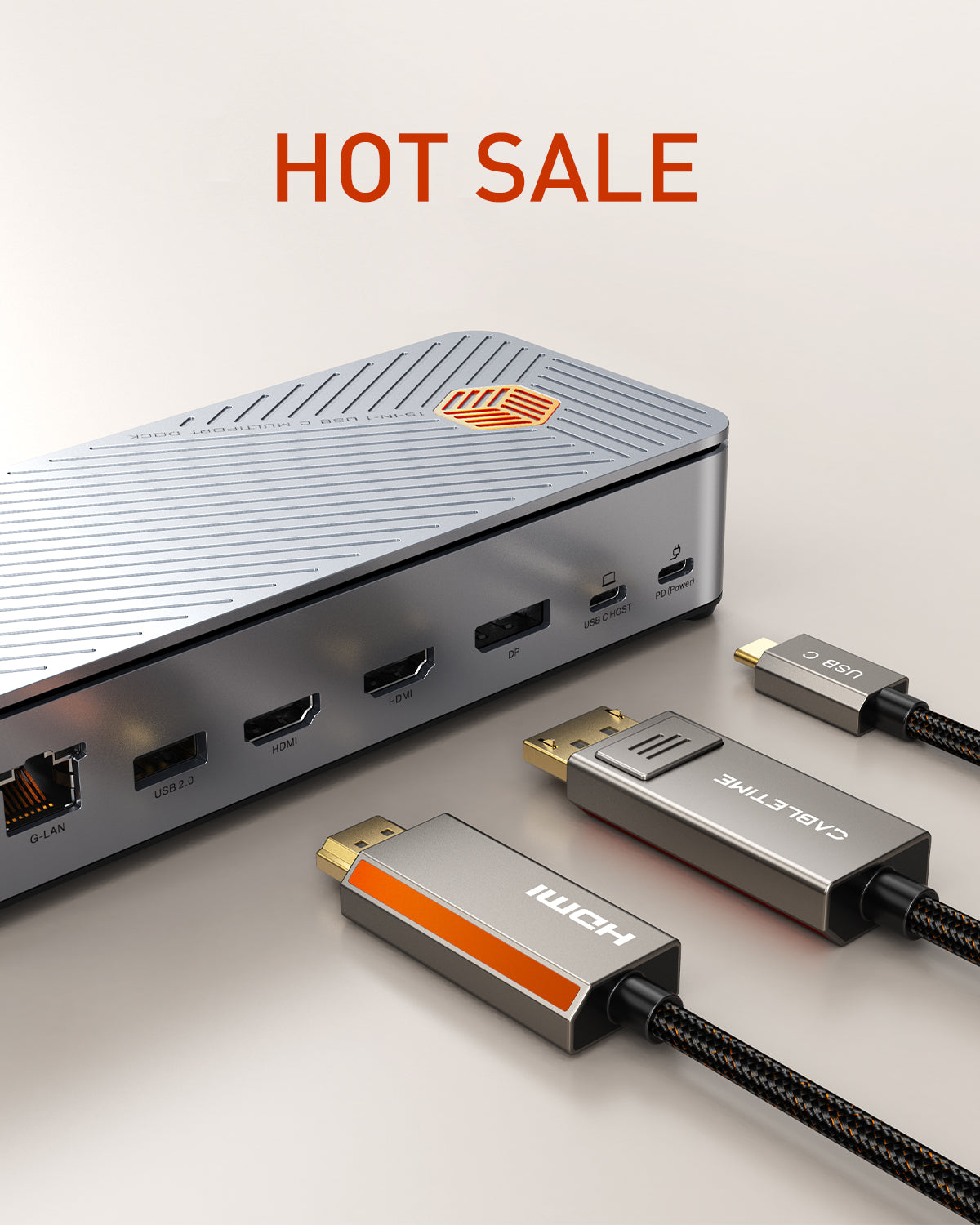
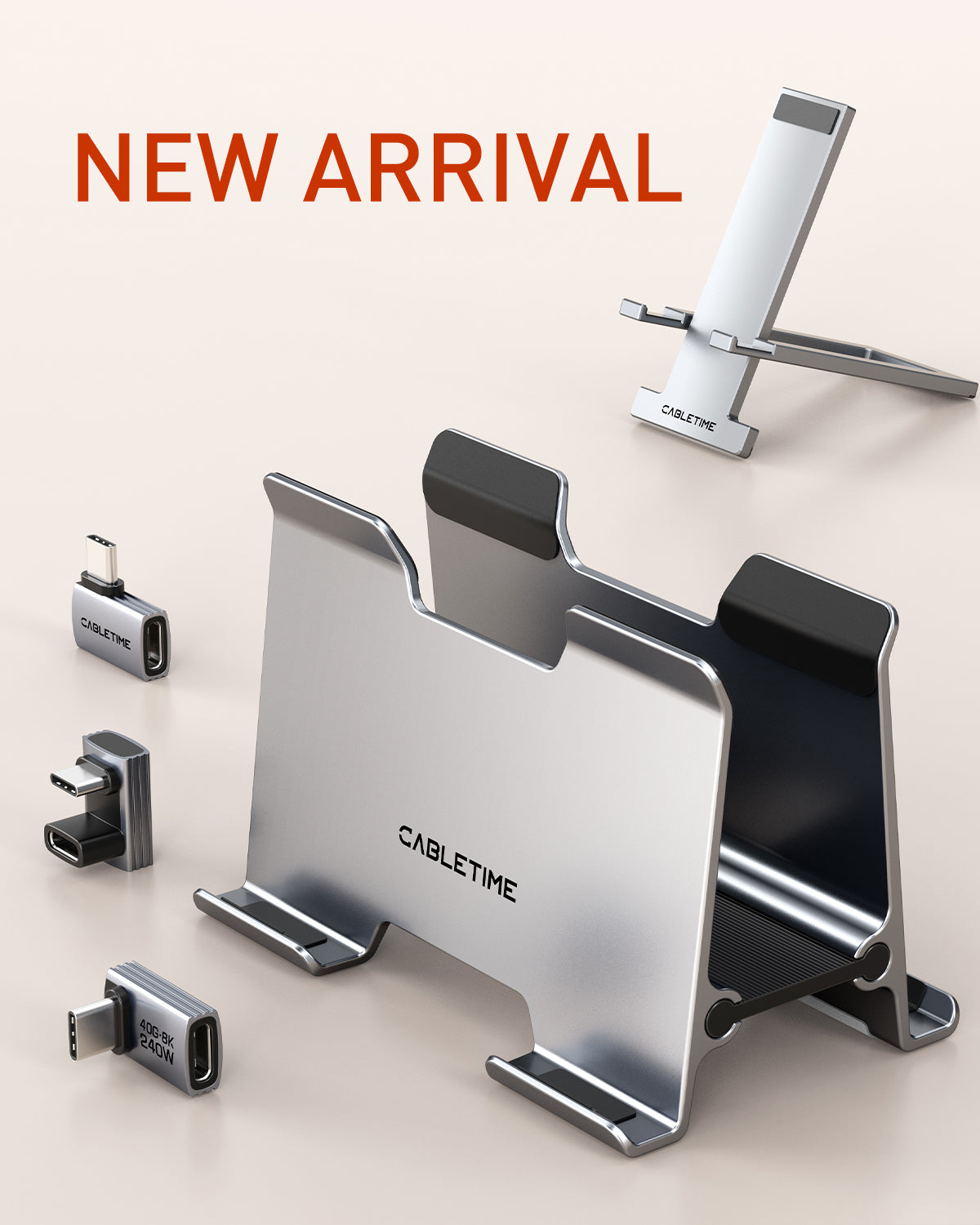
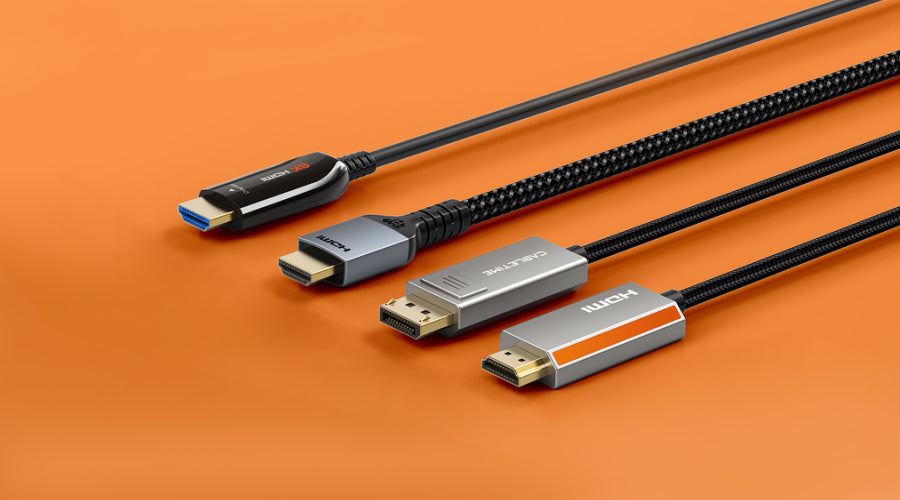
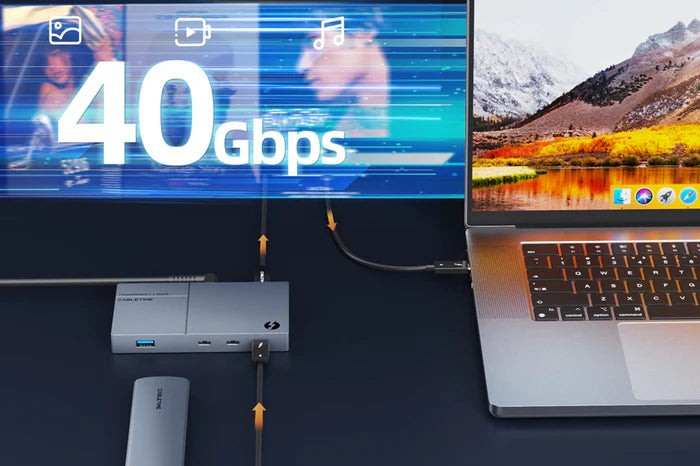
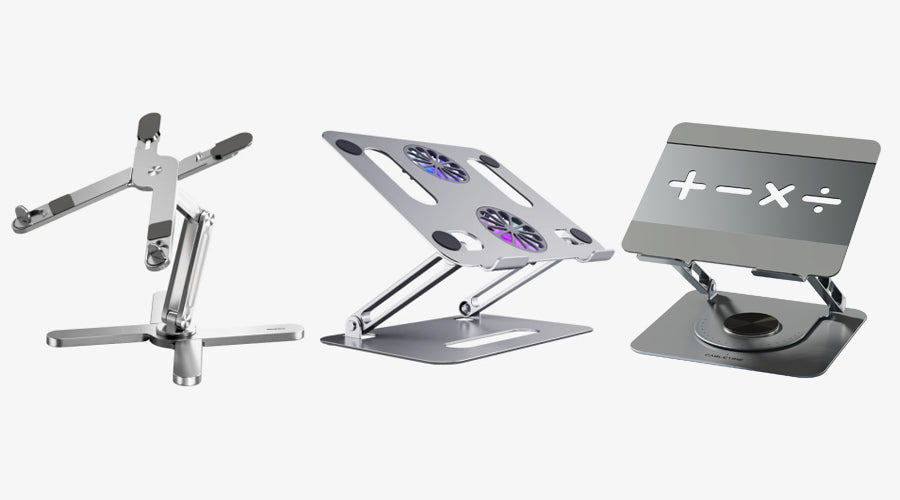
Lascia un commento
Questo sito è protetto da hCaptcha e applica le Norme sulla privacy e i Termini di servizio di hCaptcha.